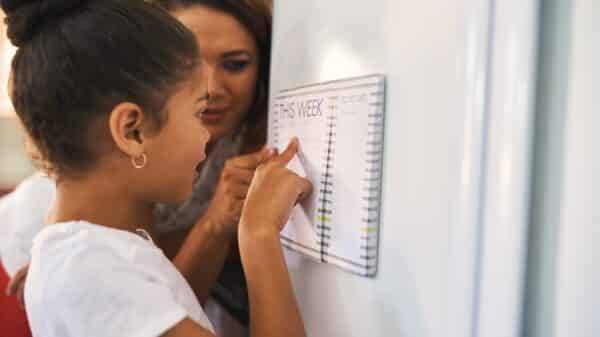When you step into the world of parenting, it often feels like signing up for an adventure without a map. There’s a whirlwind of experiences, from sleepless nights to the joyful chaos of little ones exploring the world around them. But amidst the laughter, let’s be real—there are those tough moments, like when your toddler erupts into a full-blown tantrum in the middle of the grocery store. It’s one of those situations that no amount of preparation can really equip you for.
You might feel like you’re on a rollercoaster, desperately trying to calm a storm. While you can’t completely dodge those tantrums, you can take steps to manage them in a way that eases everyone involved. Gabriel Hannans, an educator and registered behavioral technician, offers some insightful tips on how to navigate these tricky situations without inadvertently adding fuel to the fire.
In a recent TikTok video, he shared a powerful reminder: “You’re not causing tantrums, but you might be feeding them without even knowing it.” Let’s unpack that wisdom.
One of the most common reactions during a meltdown is the instinct to rush in and “fix” the situation. It makes sense—no one wants to be that parent, baring the brunt of judgmental stares from bystanders as your child cries like their world is ending. But Hannans warns that when you try to shut it down too quickly, that pent-up energy doesn’t vanish; it builds up, just like a shaken soda can, waiting for the right moment to explode again.
Instead, consider taking a deep breath and weathering the storm. If you’ve worked on emotional regulation with your child, now’s the time to prompt them to tap into those skills. But don’t feel pressured to “fix” their feelings. Sometimes, simply being a steady presence is the most constructive thing you can do. You may not be solving the tantrum, but you’re acting as an emotional anchor, guiding them through the upheaval.
Another common pitfall is inadvertently shaming your child. We’ve all heard variations of “Big kids don’t act like that” or “You’re so embarrassing!” Yet, phrases like these don’t help; they resonate deeply and can make your child feel like they’re in the wrong for simply expressing how they feel. Instead of meeting their emotions with shame, try validating them. Remind your child that emotions are natural and not the enemy—it’s how we respond to those feelings that really matters. Acknowledgment can be powerful, often giving them the comfort of feeling seen and understood.
Hannans also notes that inconsistent boundaries can escalate tantrums. Children are perceptive, and they will test the waters based on your reactions. They’re like little scientists experimenting with cause and effect. If they figured out that throwing a tantrum worked once to get what they wanted, they’re likely to try it again. Establish some non-negotiables and stick to them. That consistency builds trust and helps your child learn what behaviors are unacceptable.
Next, trying to reason with a child who’s in the throes of a tantrum often feels like speaking a different language. Hannans likens it to explaining taxes to someone in a panic—it’s just not going to connect. Instead, focus on helping them calm down. Use a soothing tone and keep your words to a minimum. Deep breathing exercises can work wonders, leading them slowly back to a place where rational discussions can take place.
Lastly, don’t overlook the triggers. If your child tends to melt down when they’re hungry, thirsty, tired, or overwhelmed, it’s essential to recognize those patterns. Walking right into the same struggles day after day and expecting a different outcome can feel like stepping into the same pothole repeatedly and wondering why your ankle hurts. If you know that a trip to the store often leads to meltdowns, doing your best to manage those conditions ahead of time can make all the difference. You might find that simply packing a snack or choosing a less stimulating environment could alleviate potential issues.
Navigating your child’s tantrums—although completely normal at this age—can be heart-wrenching. However, by adopting some strategies and understanding, the road ahead can become a bit smoother for both of you. After all, you’re not alone in this journey; many parents are in the same boat, figuring things out one tantrum at a time.
Image Source: PeopleImages.com – Yuri A / Shutterstock



































